
4 Aug, 2024
Thai Minister gives Israeli Ambassador a valuable tip to achieve tourism success
Bangkok — Thai Minister of Tourism and Sports has given the Israeli ambassador a dignified lesson in tourism promotion, telling her that Thailand remains committed to attracting visitors on the basis of equality and safety for all, regardless of religion, belief or nationality.
This is the way the July 31 meeting between Minister Mr. Sermsak Phongphanich and Ambassador Mrs Orna Sagiv was reported on the Israeli embassy’s facebook page. The two-para report gave just a broad brushstrokes account.
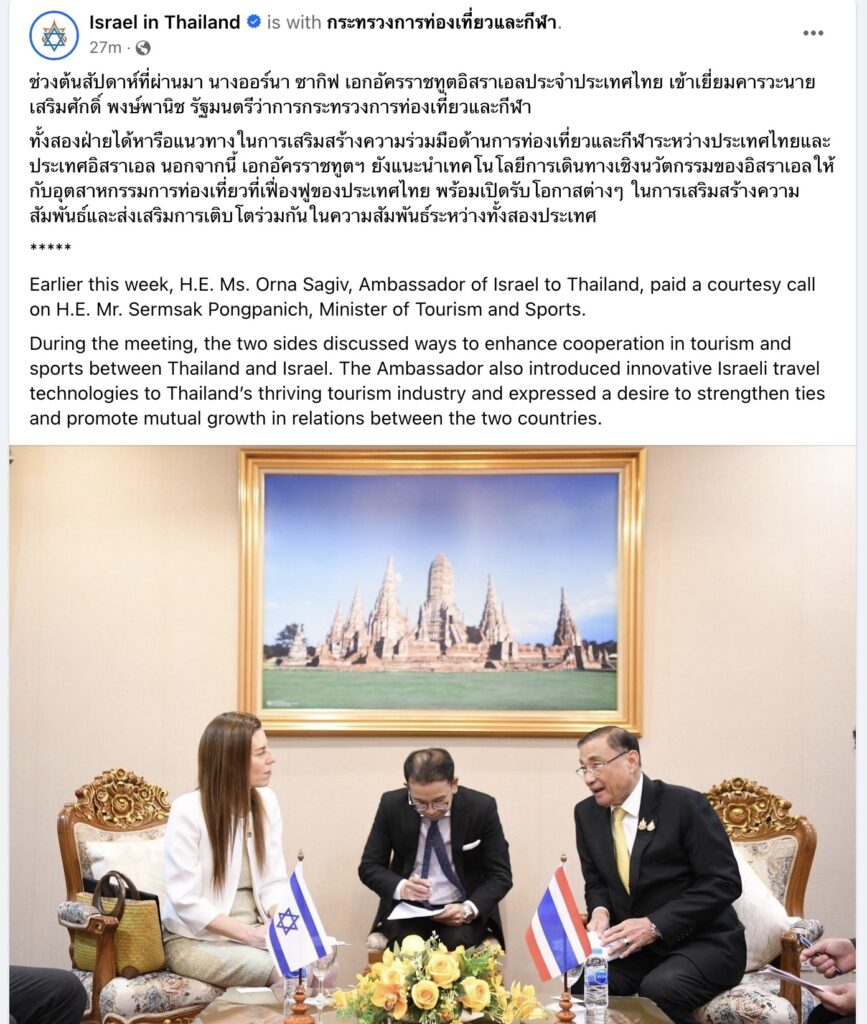
The Thai Ministry of Tourism and Sports gave a much more comprehensive account.

Here is an unofficial translation.
On July 31, 2024 at 1:00 p.m., H.E. Mrs. Orna Sagiv, Ambassador of Israel to Thailand, paid a courtesy visit and congratulated Mr. Sermsak Phongphanich on the occasion of assuming the position of Minister of Tourism and Sports as well as discussing Thai-Israeli tourism and sports cooperation at the reception room of the Ministry of Tourism and Sports, Mr. Mongkol Wimonrat, Deputy Permanent Secretary of the Ministry of Tourism and Sports, attended the discussion. The important points are as follows:
1. The Minister of Tourism and Sports expressed his gratitude to the Ambassador of Israel and congratulated her on the occasion of the 76th anniversary of the founding of Israel. He praised the good diplomatic relations the two countries have enjoyed at every level for over 70 years especially in the field of tourism. Thailand remains the top long-haul destination for Israeli tourists. From January to June 2024, more than 107,863 Israeli tourists travelled to Thailand, even though Israel is still in a state of war.
2. The Ambassador of Israel said that Israeli tourists feel safe and feel the friendliness of Thai people. It is expected that the number of Israeli tourists visiting Thailand this year will revert to the same level as pre-Covid period. The Minister of Tourism and Sports confirmed that Thailand remains committed to equality including religion, beliefs, and nationality, without any inclination towards political issues and gives importance to the safety of all tourists.
3. The Ambassador of Israel proposed three initiatives:
a) Encourage Thai airlines to fly directly to Israel because at present El Al airline from Israel provides 2 daily flights service to Israel which is unable to adequately support the needs of passengers.
b) Launch a Twin Cities Initiative, a special relationship model between two similar cities to share knowledge and development experiences. Israel praised Thailand’s Koh Samui as a well-known city with beautiful beaches.
c). Organising a seminar to exchange knowledge about Start-up Tourism and Tourism for All, about which Israel has knowledge and expertise. The Minister of Tourism and Sports thanked the Ambassador for the proposal and said he will assign to relevant departments to take action and produce concrete results.
4. On the issue of sports cooperation, the Ambassador said that Israeli people are very fond of Thai boxing and would like to organise a Thai-Israeli friendly sports competition. The Ambassador has met with the Sports Authority of Thailand to make the same proposal. The Minister of Tourism and Sports agreed to support such activities in the future.
End translation
Given the dynamics and context of the ongoing conflict in the Middle East, the meeting has broader implications for the future of Travel & Tourism — not just bilaterally between Thailand and Israel but regionally and globally.
The Ambassador talked about promoting Israeli tourism to Thailand. As the job of an Ambassador is to promote tourism to his/her own country, she would surely appreciate a two-way flow of visitors.
In which case, the Israeli tourism industry at large needs to take very specific note of the Thai Minister’s reference to the fundamentals of Thai tourism policy: “Thailand remains committed to equality including religion, beliefs, and nationality, without any inclination towards political issues and gives importance to the safety of all tourists.”
The Thai people then deserve an answer to this question: “Does Israel also welcome Thai tourists on the basis of equality including religion, beliefs and nationality, without any inclination towards political issues. Does it also give importance to the safety of all Thai tourists?”
Let’s start with the numbers: More than 100,000 Israelis visited Thailand in Jan-June 2024. By comparison, Thai visitors to Israel totalled a miniscule 1,600 in all of 2022, the last year for which statistics are available. They totalled just under 16,000 in all of 2019. That is quite a big gap.
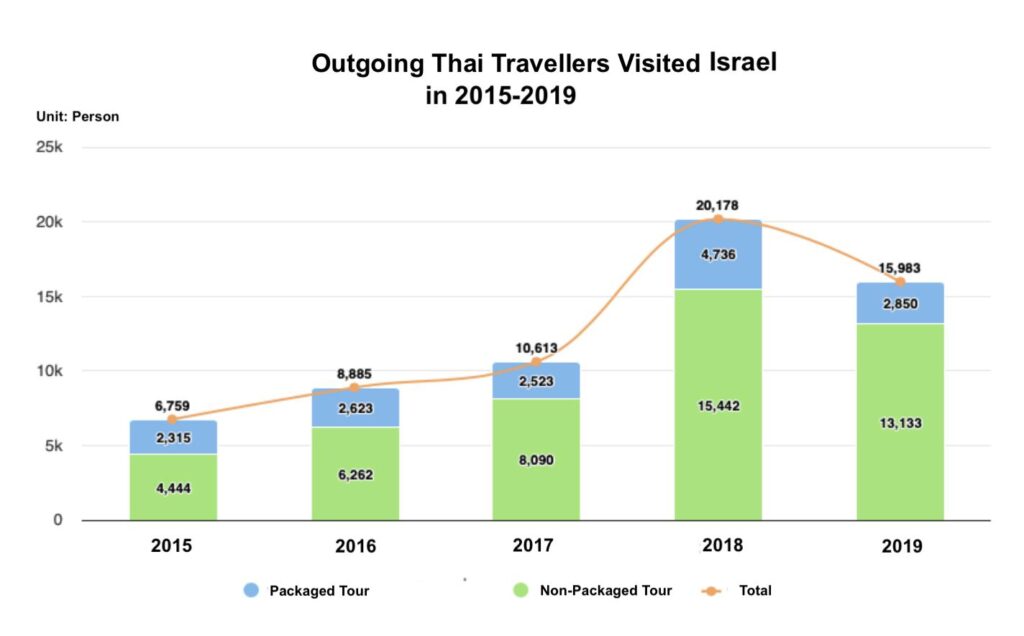
The Ambassador projected that the Israeli visitors to Thailand would hit pre-Covid levels by the end of 2024.
That is now highly unlikely.
Her meeting with the Minister took place on the same day that Israel is alleged to have assassinated Palestinian resistance leader Ismail Haniyeh. That has significantly raised the risk of a broader conflict. For safety reasons, airlines have cancelled flights to Israel, which means travel in and out of Israel will be down again.
Secondly, in addition to equality and safety, another very important reason why Thailand is popular with Israelis is because they can walk into the kingdom visa-free. But Thais need visas to go to Israel. That is not an easy process.
The inequality in treatment starts right at the visa counter. A Buddhist or Christian Thai will be treated differently from a Muslim Thai who will be subjected to far more detailed interrogation and security checks. More intrusive security checks and interrogations will follow at the Israeli border checkpoint, whether by air or land.
Note that Israeli visitors to Thailand are not subjected to this, even though they are well-trained soldiers, heavily indoctrinated to hate all things Muslim or Arab.
If the Ambassador lauded the fact that Israeli visitors feel welcome and safe in Thailand, can she assure the Thai visitors of the same treatment in her country?
Given the huge imbalance in two-way tourism flows, it would appear that Israel needs to learn from the Thai tourism experience far more than the other way around.
Thanks to its balanced and friendship-with-all foreign policy, Thailand gives visa-free or visa on arrival privileges to 119 countries.
Thai tourism has long benefitted from diplomacy-driven peace — post-war peace in the Indochina and Mekong regions since the 1970s, peace in the ASEAN region, peace with Saudi Arabia after a 32-year break in relations. Internally, Thailand tamed a communist insurgency in the 1970s with a dual hearts and minds + carrot and stick campaign. Strong efforts are under way to bring peace to South Thailand on pretty much the same formula.
As a result of this peace, cross-border tourism is booming, except with the one country, Myanmar, which, like Israel, suffers precisely because it is not at peace, either with itself or with its neighbours.
In fact Israel, would have been enjoying a tourism boom had the Jewish extremist fanatic terrorist Yigal Amir not assassinated Nobel Peace prize-winning Prime Minister Yitzhak Rabin in November 1995. Had Rabin’s vision and dream been realised, a State of Palestine would have been in existence and the entire Holy Land would have been booming with pilgrims of the Abrahamic faiths.
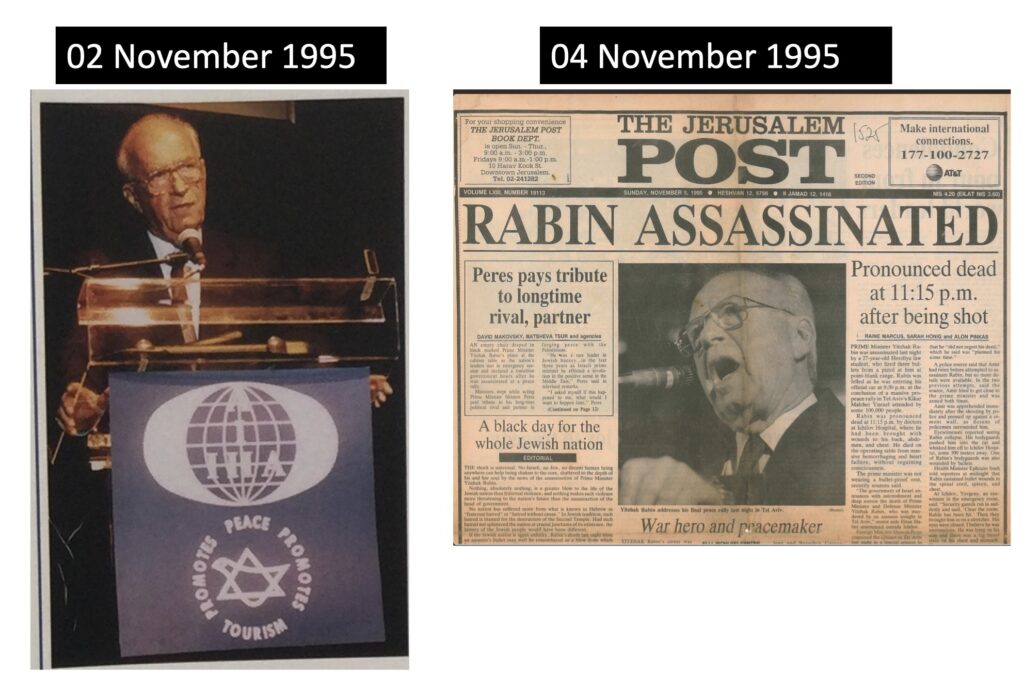
Thailand knows well that both external and internal peace are critical for tourism success. That means ensuring it does not fall victim to communal strife which has destroyed tourism and the economies of countries such as Myanmar and Sri Lanka. Here, too, the Israeli role deserves scrutiny.
In January 2024, the Israeli ambassador spearheaded a tuk-tuk campaign purportedly to rally support amongst the Thai public for freeing the Thai hostages held by the Palestinian resistance group, Hamas. The Thai Foreign Ministry, clearly understanding the broader implications of that campaign, expressed its disapproval on the explicit grounds that Thailand did not want to be used by other countries to promote conflict.
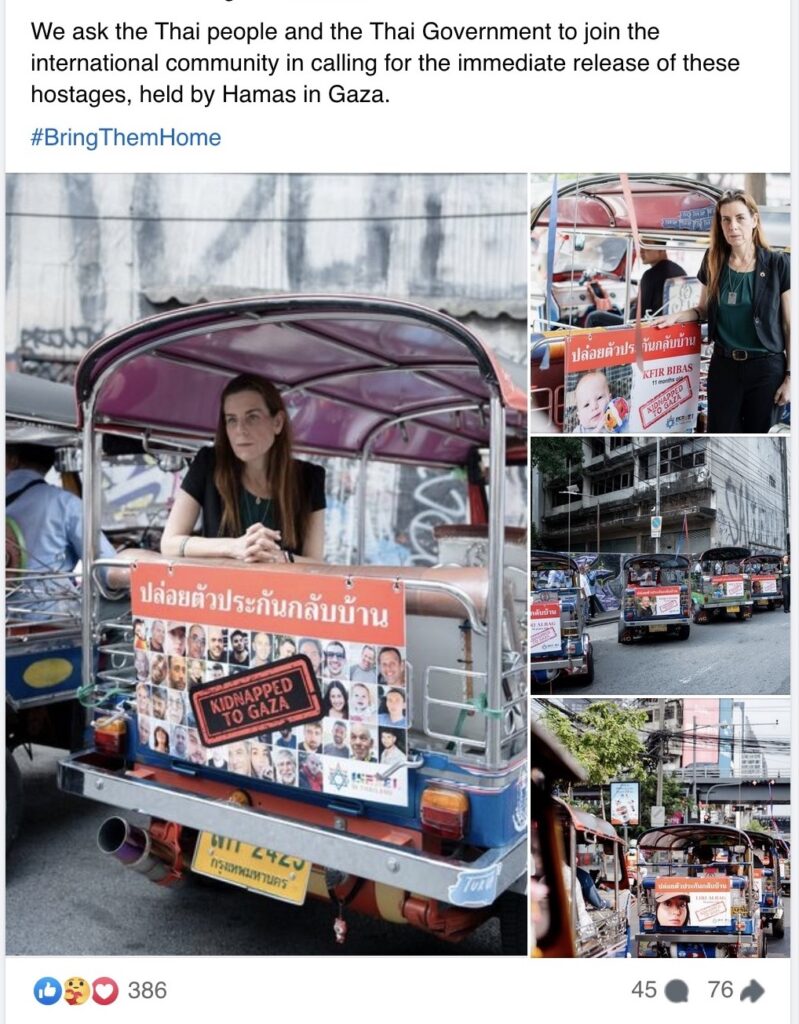

The Israelis quietly pulled the campaign.
In spite of that, in July, the Israeli ambassador went directly to the Thai-Christian groups to rally their support.

If the Israeli Ambassador wishes to include tourism in her overall mission to promote bilateral Thai-Israeli relations, it will have to be on the basis of reciprocity and mutual respect.
She wants Thai airlines to start flying to Israel. Wonderful. But that flight will only prove profitable if there is two-way traffic. Promoting a Twin city concept may be a good idea but the same issues will come up: Will Thais enjoy the right to visit the Israeli twin-city partner and be treated with mutual respect, equality and safety?
Start-up tourism will also help attract Israeli investments, which is a good thing, but that may prove to be a liability if the global boycott movement against Israeli products and companies grows. That movement is the same as sanctions that Israel seeks to tighten on Iran. If the Israelis dish it out, they should also be prepared to take it.
Finally, why do Thai citizens have to apply for a visa at an Israeli embassy in order to visit the State of Palestine?
The State of Palestine is officially recognised by the Royal Thai Government but the Thai people cannot visit that state unless they get cleared by Israeli government, an occupying power. Note that Thailand considers the occupation illegal, and yet Thai citizens have to apply for a visa at the embassy of the illegal occupying power in order to visit a legally recognised state.
That does not sound kosher.
In fact, Thailand has long been supporting tourism contacts with Palestine.
The Thailand International Cooperation Agency, a unit of the Thai Foreign Ministry, has funded study trips by Palestinian tourism industry officials to learn from the Thai experience. TICA executives have also visited Palestine. Clearly, Palestinian tourism will boom if peace returns to the Holy Land, but not if potential visitors have to first seek approval from the Israelis.
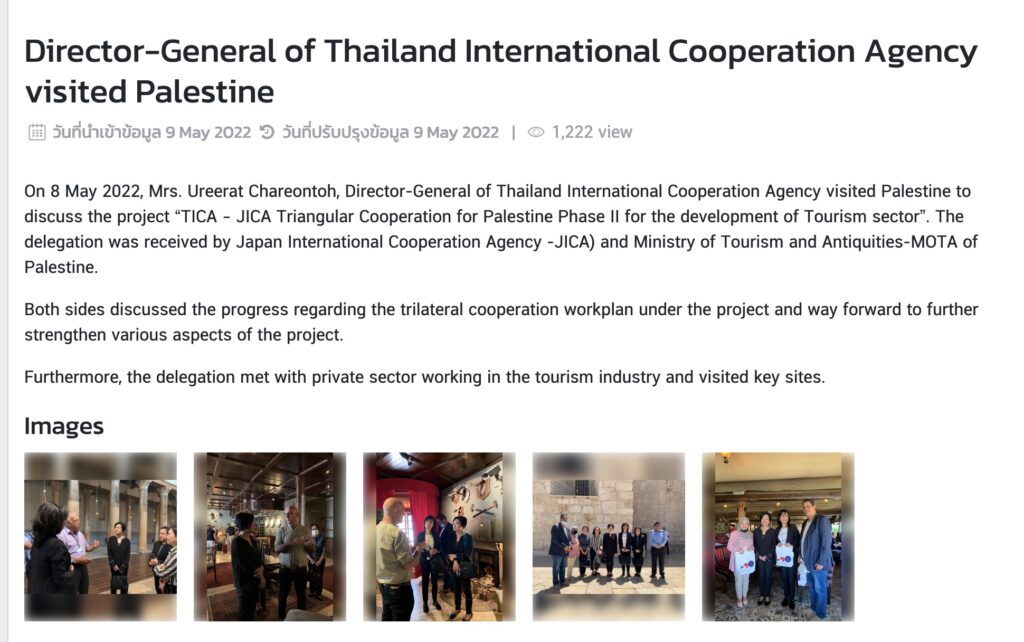
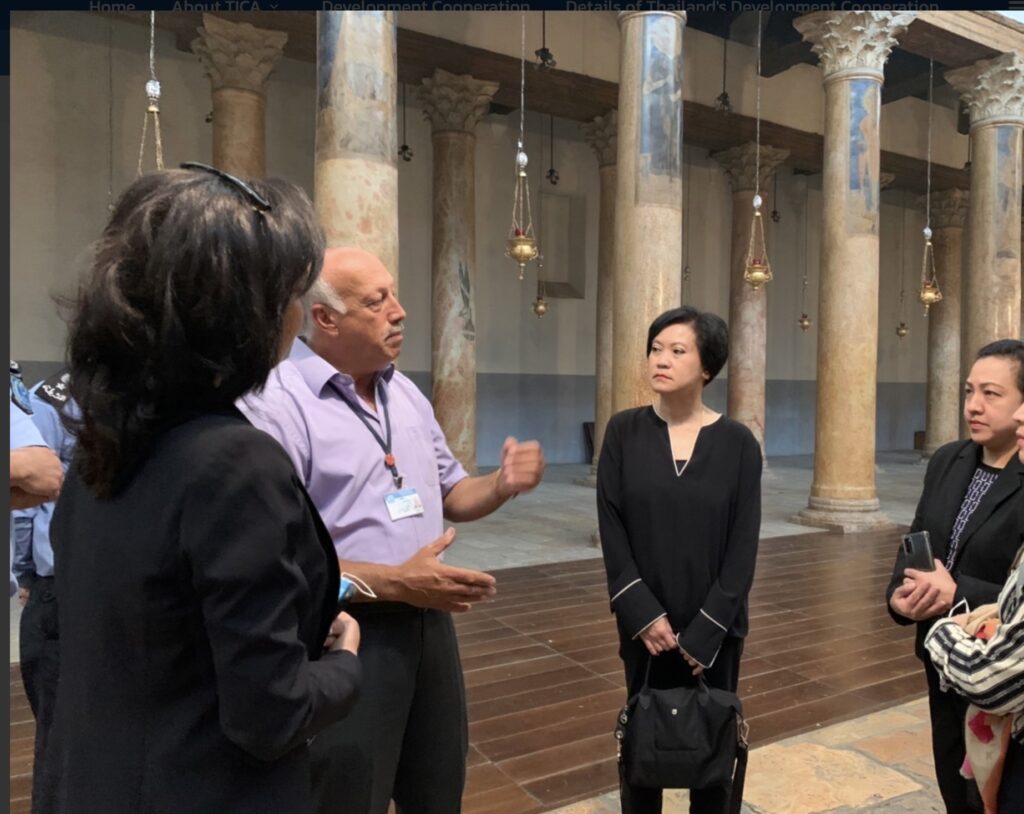

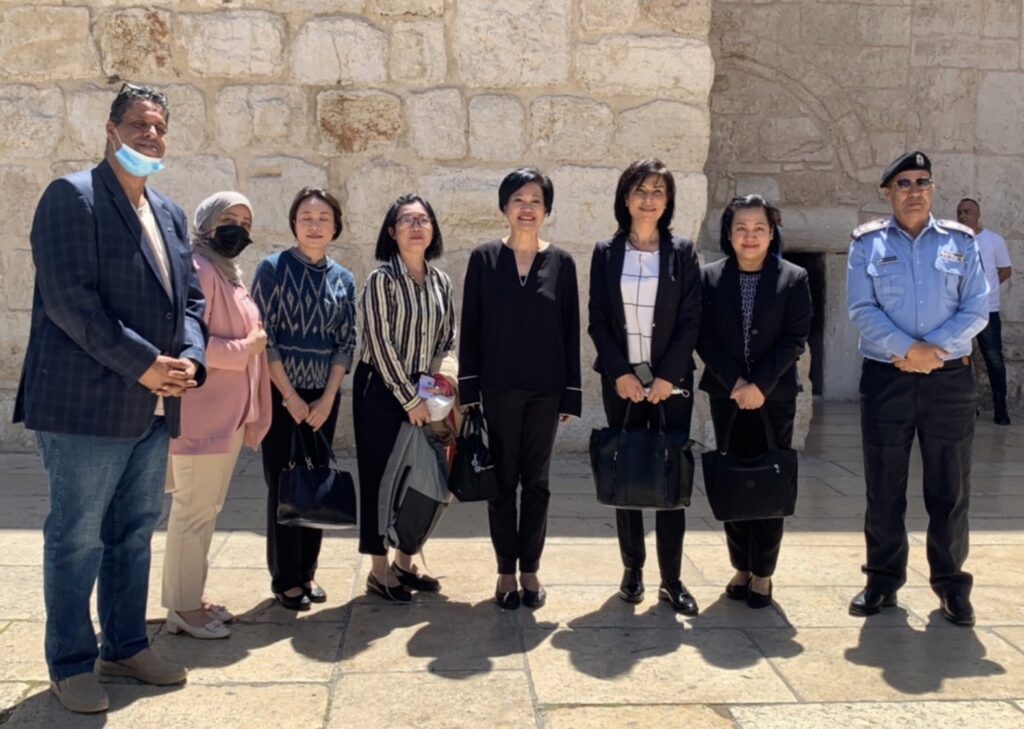
A State of Palestine would be of great benefit to Israel. For sure, Palestine will attract more visitors than Israel itself, but many of those visitors may cross over to visit Israel, too.
Now that she has called on the Thai Tourism Minister, the Israeli ambassador should also visit the Thai private sector travel industry associations and meet the media. The questions raised in this article will certainly come up.
Many Thais would love to hear the answers.



Liked this article? Share it!